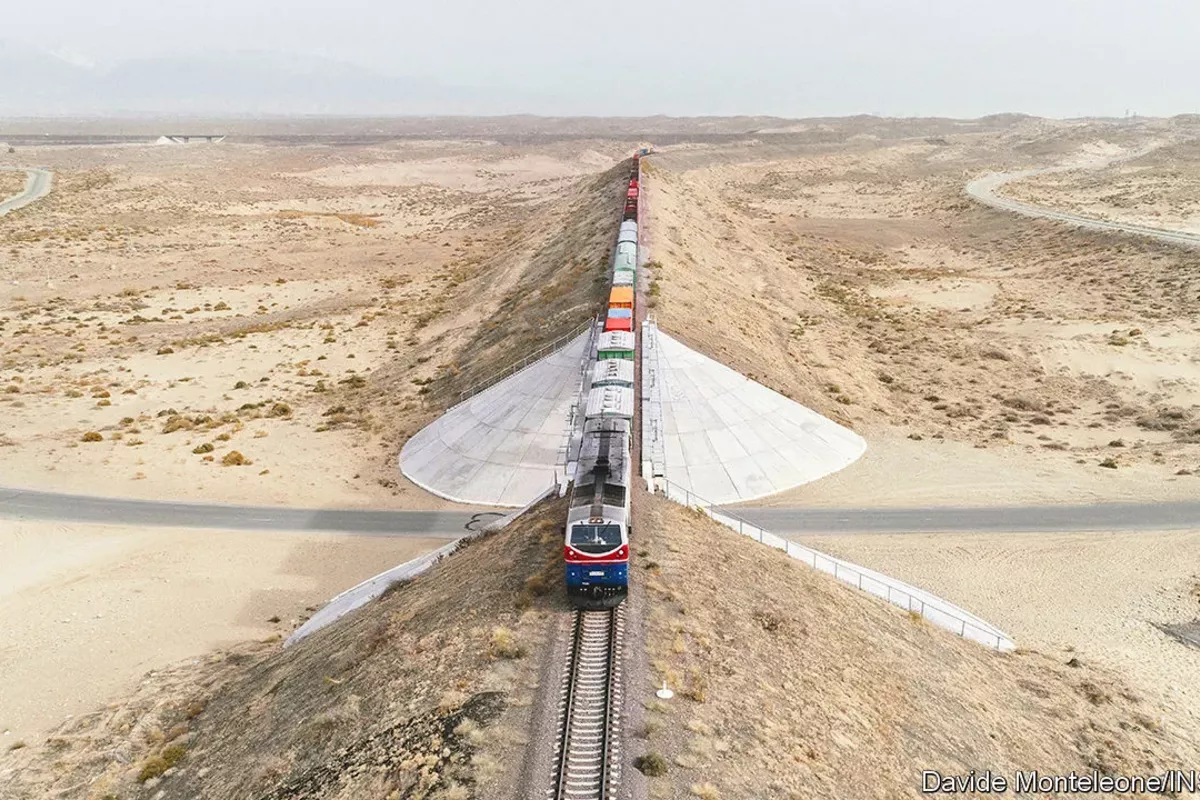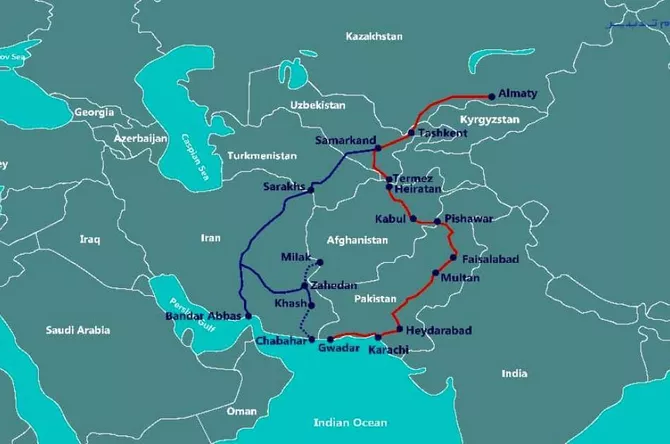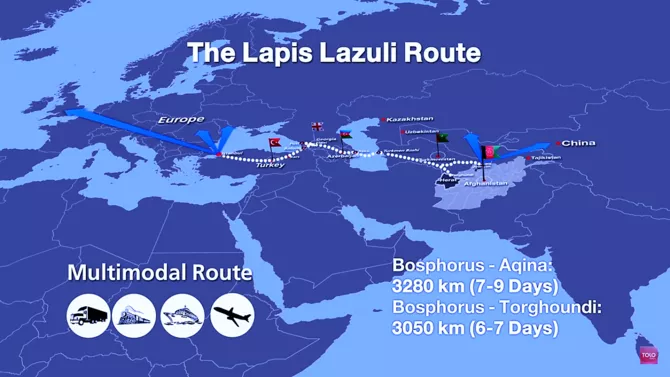
photo: The Economist
On July 11, 2025, Kazakhstan and Afghanistan signed a Memorandum outlining the key principles for the construction and operation of a railway connecting Central and South Asia. The agreement aims to foster the development of efficient transport and logistics infrastructure, with a particular focus on implementing the Trans-Afghan railway corridor.
The idea for the project dates back to 2018, when Uzbekistan first introduced the concept of the Trans-Afghan railway. The initial plan involved extending Afghanistan’s railway network from Mazar-i-Sharif to Kabul, and subsequently to Paktia province. In 2021, Uzbekistan, Afghanistan, and Pakistan reached an agreement to construct a major railway line along the Termez - Mazar-i-Sharif - Kabul - Peshawar route. In 2023, these countries signed a protocol to link the Uzbek and Pakistani railway networks along the Termez - Mazar-i-Sharif and Logar - Kohat routes. The project’s completion was scheduled for 2027. The new railway line is expected to provide Central Asia with direct access to the ports of the Arabian Sea.

photo: avapress.com
Gradually, other countries in the region began joining the project. In spring 2024, the railway companies of Uzbekistan and Turkmenistan signed a Memorandum of Understanding to enhance cooperation. Shortly thereafter, Kazakhstan and Uzbekistan agreed to establish a joint venture to coordinate the construction of the Trans-Afghan railway corridor. Around the same time, Pakistan and Kazakhstan proposed an initiative to expand the railway route.
In spring 2024, during a meeting of participants in the multimodal transport corridor connecting Belarus, Russia, Kazakhstan, Uzbekistan, Afghanistan, and Pakistan, Russia expressed its support for the construction of the Trans-Afghan corridor. Moscow and Tashkent announced plans to jointly develop a feasibility study for the project, with the goal of integrating the Uzbekistan - Afghanistan - Pakistan route into the international North-South transport corridor.
In this context, Afghanistan’s role as a vital link between Central and South Asia has become increasingly prominent. According to Uzbekistan’s Foreign Ministry, the Trans-Afghan railway is being hailed as a new driver of growth for trade and investment across the region. At the same time, the project is viewed as a crucial logistical link potentially connected to the China-Pakistan Economic Corridor (CPEC). The Trans-Afghan railway may serve as an alternative route to the traditional freight corridors between China and Europe, and with access to the Indian Ocean, it may also facilitate direct trade with India. This strategic direction has garnered support from Russia as well.
Special attention is also warranted for Turkmenistan’s initiative, which involved signing an agreement with Afghanistan to construct a railway along the Torgundi - Herat - Kandahar - Spin Boldak route, providing access to Pakistani ports. Ashgabat has also called on Kazakhstan to join the project, which analysts believe may become a competitive alternative to the railway line leading to Peshawar.

photo: Business Georgia
Some experts believe that the Torgundi - Herat route may potentially be integrated into the Lapis Lazuli Corridor, which runs from Herat through Ashgabat, Turkmenbashi, Baku, Georgia, and Türkiye. This integration would provide an alternative access route to the Black Sea and Europe.
Thus, Central Asia continues asserting its growing geopolitical significance, particularly highlighted by a series of strategic “C5+” meetings that include dialogues with the EU, Italy, and China. The development of the China-Kyrgyzstan-Uzbekistan railway route, alongside the Middle Corridor project (the Trans-Caspian International Transport Route, or TITR), further enhances the region’s strategic importance.
It is also important to highlight the sustained interest of the US in the region. Despite Washington’s statements about a potential shift in its foreign policy approach, the US clearly shows no intention of relinquishing its geopolitical interests in Central Asia.
The increased activity of the Organization of Turkic States and the strengthening strategic partnership between Central Asian countries and Azerbaijan is also significant. This was notably demonstrated by the invitation of Azerbaijan’s President Ilham Aliyev to two consecutive consultative meetings of the presidents of the Central Asian countries. As a result, a robust Central Asia-Azerbaijan partnership is taking shape-one that goes beyond mere geographic ties.
Central Asia is confidently establishing itself as a dynamic new transport and geopolitical hub of Eurasia, linking China, Europe, the Middle East, and South Asia.
Share on social media